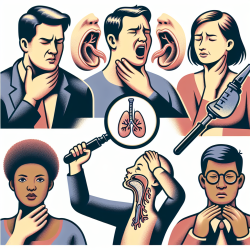Introduction
The opioid crisis remains a significant public health issue, with over 1.6 million individuals in the United States living with opioid use disorder (OUD). Despite the availability of effective treatments like medications for opioid use disorder (MOUD), only 18% of affected individuals receive these treatments. A recent study titled Integrating Persons With Lived Experience in Opioid Use Disorder Education: A Small Group Exercise and Patient Panel offers valuable insights for practitioners aiming to improve their skills in managing OUD through innovative educational approaches.
The Study's Approach
This study was conducted at the University of Miami Miller School of Medicine and involved first-year medical students. It utilized a small group exercise and a patient panel to integrate harm reduction principles into the medical curriculum. The exercise was designed to provide students with insights into the lives of people with OUD and to connect biomedical knowledge with core professional values.
The study's methodology involved a harm reduction-centered small group case exercise, followed by a patient panel featuring individuals with lived experience of OUD. This approach aimed to humanize the educational experience and provide students with a deeper understanding of the challenges faced by individuals with OUD.
Key Outcomes
The study found that students showed significant improvement in their understanding of OUD diagnosis, treatment options, and the role of stigma in healthcare. The inclusion of persons with lived experience as educators provided a unique perspective that traditional educational methods often lack.
- Increased confidence in diagnosing OUD and describing treatment options.
- Enhanced understanding of harm reduction principles.
- Improved empathy and reduced stigma towards individuals with OUD.
Implications for Practitioners
For practitioners looking to enhance their skills in managing OUD, integrating lived experiences into education can be transformative. This approach not only improves clinical competencies but also fosters empathy and understanding, which are crucial in treating substance use disorders.
Practitioners are encouraged to consider the following strategies:
- Incorporate patient panels featuring individuals with lived experience into training programs.
- Adopt harm reduction principles in practice to better meet patients where they are.
- Engage in continuous education to stay updated on best practices in OUD management.
Conclusion
The study underscores the importance of integrating lived experiences into medical education to enhance understanding and treatment of OUD. Practitioners are encouraged to adopt these educational strategies to improve patient outcomes and contribute to a more empathetic healthcare environment.
To read the original research paper, please follow this link: Integrating Persons With Lived Experience in Opioid Use Disorder Education: A Small Group Exercise and Patient Panel.










